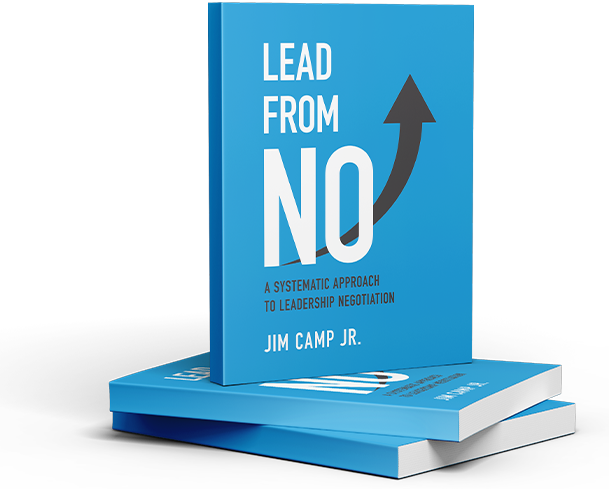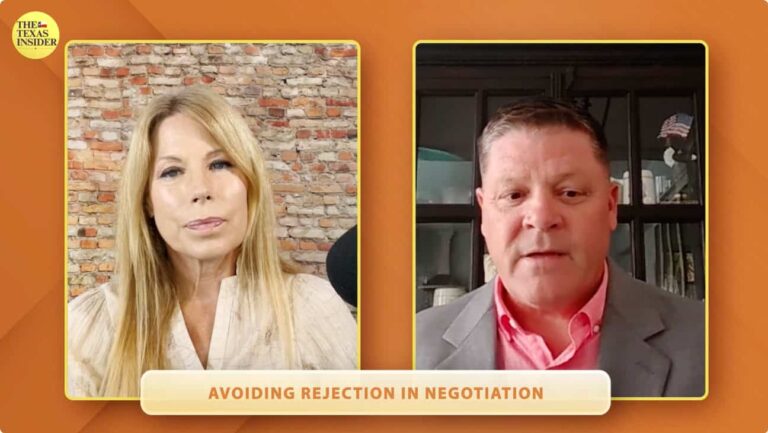The real world of negotiation is pressure-filled. You observe and experience the best, the worst, and everything between with a “What’s In It For Me?” mindset. Your respected opponent sees you, your company, and this negotiation as a means to an end. A few may be honest enough to tell you, “This is business, not personal.” Some make threats and demands. Others flatter you and behave cordially. Some may even be very respectful. But make no mistake; they are in it to get what they want.
Faced with the real world of negotiation, all the tactics and tricks you learned seem like a joke, especially if you are being hammered from all sides by your team, competitors, and middlemen.
Negotiation is not for the faint-hearted. In this high-pressure environment, you can immediately regret an offer you accept or make. Every day negotiators wake up and discover that the contract terms were disastrous. Why didn’t they see what they agreed to? Why did they say “yes” to something that set their efforts back rather than move them forward?
Negotiation Defined
In the Camp System, we start with a shared understanding of the definition of negotiation. Negotiation is an effort to create agreements between two or more parties, with all sides having the right to veto. The right to veto is essential. And that’s what makes us a bit contrarian to many others.
How is Negotiation Mastered?
If negotiation is a learned human performance event, you must master it, just like all learned human performance events are mastered. The repeated, perfect practice of a valid “system” builds mastery. Practice doesn’t make perfect. Perfect practice does. You have to discover your mistakes and correct them. Then, it would be best if you solidified these into habits through repeated, perfect practice.
Practice doesn’t make perfect. Perfect practice does.
What is a “System”?
The word “system” is defined in many ways. To us, a system perfectly aligns principles, behaviors, and rules within a valid structure that enables the user to correctly identify and solve the expected and unforeseen problems that arise in a learned human performance event.
By their very nature, all learned human performance events are subject to problems that threaten progress toward a successful outcome. A doctor must know what to do if a patient goes into shock during an operation, just as a pilot must if he encounters turbulence at 30,000 feet.
Why You Need a System
A System must help its users see, identify and resolve all the problems encountered during a particular human performance event. Otherwise, there’s no difference between a system and a collection of tactics, tricks, and theoretical knowledge.
Your System must protect and guide you in real-time in a learned human performance event. Or else it’s not a system or not a valid one. Systems deal with both “knowing” and “doing,” and not one or the other.
Negotiators must know what to do when they encounter problems. They could face power plays, bullying, manipulation, lying, demands, threats, feigned respect, ultimatums, baggage from past unfavorable interactions, bitter conflict, and much more.
A negotiator cannot fail to see what is happening now, what must happen next, and how to make that happen, regardless of twists, turns, and bumps,
What is Mastery of Negotiation?
We’ve all been negotiating personally and professionally, experiencing many successes and failures.
Does the fact that we spend extended amounts of time and lots of energy negotiating mean that we can be “on par” with the masters of negotiation?
Experience shows us this is not the case. Typically we reach a plateau. We reach an “okay” level of negotiating and stop learning to improve. We have other things to do, places to go to, deadlines to keep, families to care for, and projects to finish.
Humans usually get into the habit of doing something in a particular way and stick with it. We do this when driving a car, ironing a shirt, or negotiating a deal. Rarely do we stop to reflect on why a particular thing we say or do works or fails. Even more rarely do we reflect on the failures and successes of other people.
The truth is that we only reflect on things that are very important to us. Look at professional athletes, doctors, carpenters, plumbers, and scientists. Every serious professional improves, learns, and grows this way. Apprenticeships and internships depend on conscious, reflective practice for mastery. When we do something exceptionally well, it’s a sign we have mastered it.
Is Negotiation Mastery Important?
We negotiate constantly, but we don’t see mastering negotiation as necessary. We negotiate in ways we have been taught or researched or have learned through experience and observation. Typically, this is a process of trial and error, and we don’t see the connection between what we said or did, how we said or did it, and the outcome.
For most of us, negotiation is not our primary calling. We are engineers, sales professionals, CEOs, business owners, entrepreneurs, and technicians. But we are negotiating every day — even though negotiation is not our primary calling. Can you hire someone to negotiate on your behalf? I’m afraid not. Some of your personal and professional negotiations cannot be outsourced to another person — regardless of their professional expertise or level of mastery. You must negotiate to get what you want. People negotiate with you to get what they want. That’s it.
This is why reaching a plateau or relying on a seat-of-the-pants approach in negotiation is risky.
Who We Are, What We Do, and How We Deliver It.
We pride ourselves — as innumerable satisfied clients say — on coaching the world’s only valid System of Negotiation. Our coaching is not a series of pep talks or feel-good conversations. We don’t pump you up. We provide the coaching support you require to use a valid System that keeps you safe and focused and delivers laser-like guidance at every moment.
How do we define coaching? Coaching is the effort to train intensively with detailed instruction, frequent demonstration, and repeated practice for a critical human performance event.
We are coaches, not consultants. As coaches, we jump into the trenches and remain there with you — until you reach the agreement you seek or reach a point where we both see an agreement is impossible. We take our coaching responsibilities very seriously. We’ve worked with novice and veteran negotiators alike — and created “aha moments” for both. We build your team’s negotiation DNA and your organization’s negotiation culture. We leave nothing to chance because you won’t feel safe gambling with your careers and businesses.
Our Founder, Jim Camp, built our coaching foundation. During his lifetime, he was told he was the most feared negotiator based on his unique approach and the impact he made in the field of negotiation. (And he coached CEOs, lawyers, business owners, and even the FBI hostage negotiators.)
What Delivers this Calm Confidence, Authority, and Effectiveness?
Perfect practice makes perfect — via the system-built, system-led, and system-driven mindset. Repeated perfect practice builds a distinct mindset characteristic of the Camp System of Negotiation clients. Our System of Negotiation imparts this mindset to each of its users.
Coaching helps you discover and see the existing weaknesses in your mindset (and those of your team members — individually and collectively) and provides you the opportunity and means to fix them. With continued perfect practice, you acquire an updated mindset. This mindset enables you to see the reality of negotiation for what it is and see the realities driving each negotiation you are involved in. You can then use this mindset whether you are negotiating with a prospect, client, spouse, child, boss, or anyone else.
What Does This Give You?
The Camp Negotiation System gives you clarity, control, effectiveness in decision-making, and confidence — as an individual or globally distributed team. Everyone is always on the same page, seeing the same thing — in relation to what is happening now, what must happen next, and how to bring that about.





